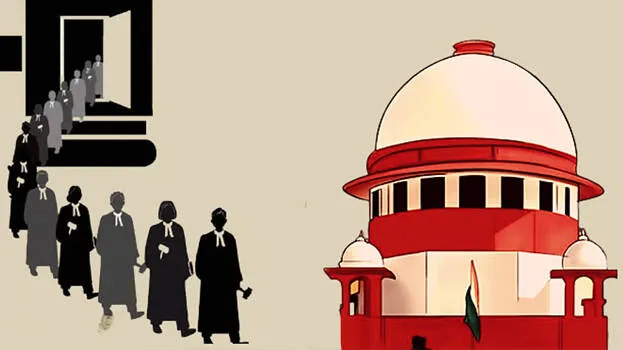

The lack of proper experience in the functioning of the court and other litigation processes of those who directly enter the judicial service had led to many problems. There have also been situations where lawyers have collectively opposed many decisions of those who enter the judicial service without practising law. Bar associations have constantly demanded that fresh law graduates should not be directly appointed as magistrates and munsiffs and that experience in the legal profession should be made mandatory for their appointment. The Supreme Court has now given a final verdict in this regard. The Supreme Court has directed that only those who have worked as lawyers for at least three years can now apply for the Judicial Service Examination. The Supreme Court has asked the High Courts and state governments to amend the rules to incorporate this directive.
The bench comprising Chief Justice B.R. Gavai and Justices Augustine George Masih and K. Vinod Chandran has clarified that this will not affect the recruitments that have already started and that the verdict has no retrospective effect. The experience of the applicants should be certified by the Principal Judicial Officer of the concerned court or an advocate with ten years of standing at the Bar. Experience working as a law clerk under judges or judicial officers will also be considered along with legal practice. Newcomers to the judicial service will have to face lawyers who have been practising in the courts for many years. Lack of experience in court procedures can be a hindrance here.
The litigation processes in the court are complex. It is difficult to understand this in a short time. There is a possibility of mistakes in the decisions of those who are inexperienced. Becoming proficient and experienced in handling the law is not something that can be achieved in a few days. To understand the methods of the courtroom, one has to be in the courtroom. Most of what is studied in college is only theories. Its application is what happens in the courts. Experience is essential to gain knowledge about it. Judicial officers need the ability to understand the strategies of lawyers and their problems at the same time. Knowledge obtained from books and classrooms alone is not enough for this. On the contrary, if they have experience of working with senior lawyers, they can face any dangerous situation with equanimity and remain firm within the limits of the law.
Lawyers may even have a prejudice that mistakes can be made by those who join the service without experience in the legal profession. This, in turn, can lead to problems being further complicated even if there is a small error in the decisions of judicial officers. From the day they join the job, judges will have to deal with many issues such as life, liberty, property, and dignity of the complainants within the limits of the law. To deal with all this, practical knowledge along with legal awareness is required. The experience qualification for lawyers, which was relaxed since 2002, has now been restored on that basis. The new decision of the Supreme Court is certainly conducive to further strengthening the excellence of the judicial service.